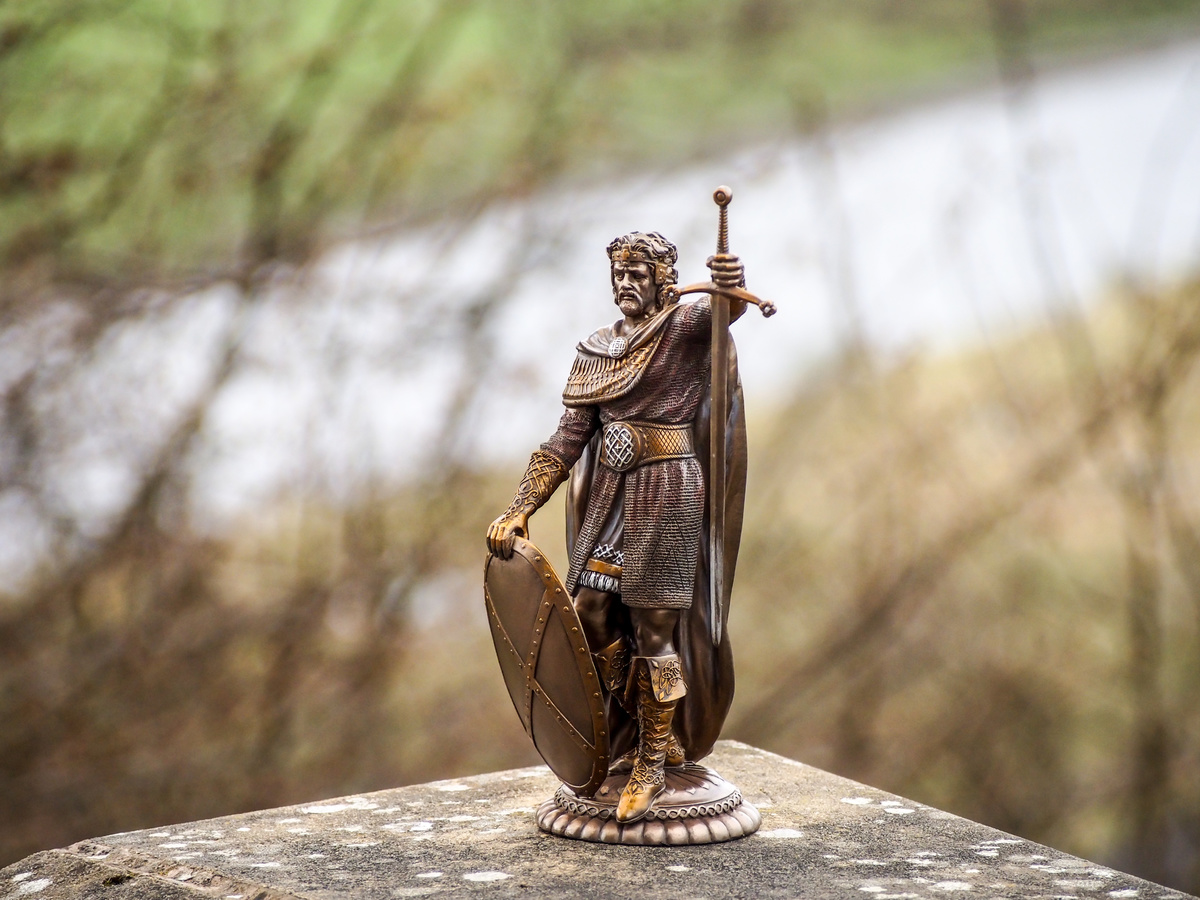
TLDR: The William Wallace speech in Braveheart, while fictional, was powerful for many reasons. It’s short yet memorable. Everyone can relate to it. It works in many situations. And it’s incredibly inspiring.
So What? Communicators can learn from Wallace’s speech to create their own icon-worthy messages that will stand a chance of being remembered long after they’re read or heard. Here’s how.
William Wallace’s speech to the ragtag Scottish army in Braveheart has become so iconic that it has been quoted, used in ads, parodied, and made into memes. The line “They may take our lives, but they’ll never take our freedom!” can be funny or serious; life-altering, or merely a rage against the machine. The lasting power of this line alone has carried the movie into iconic status since shortly after its release in 1995.
The movie was fiction and gets almost everything historically wrong, from the costumes (no kilts) to the face paint (wrong time period) to Wallace’s titular nickname (which actually belonged to another Scot whose heart was physically removed to be buried in his homeland).
However, his now-famous rallying cry is oh so right. Why does this brief speech live on in the collective consciousness as a cry of defiance against anything perceived as restrictive or prohibitive?
It’s Short and to the Point
To take on the status of meme or icon, Wallace’s words have to be short enough to be a sound bite or a one-liner. The full speech from when Wallace comes onto the scene can’t be more than a minute, and its famous final line is what sticks in the minds of viewers.
What Wallace does is remind the fighters exactly what they’re fighting for, and what awaits them if they give up without a fight. The Scottish slaves, who had long been oppressed by the British, decided they would rather die than keep being slaves. While neither the speech nor the battle are the end of the conflict, they showcase Wallace’s courage, which ultimately leads to Scottish freedom.
It’s Memorable
Once someone has seen this speech delivered by Mel Gibson playing Wallace in a mullet and face paint, it’s impossible to forget it. The impossible odds, the fear of the men until Wallace galvanizes them, and their fierce defense of liberty are seared into viewers’ brains as emotional touchpoints that will far outlive a 1990s movie about an obscure historical legend.
The film and its defining moments far surpassed any expectations its creators had for it. The film stayed in theaters for a year and made more than $220 million. The mere fact that people are still talking about the scene today shows it’s unforgettable in its power and grit.
It’s Relatable
Americans care about a war between the Brits and the Scots because the filmmakers made it about freedom and sacrifice. Wallace’s famous line echoes Patrick Henry’s “Give me liberty or give me death!” during the Revolutionary War.
It’s a rallying cry of all revolutions. Any people who during their history have had to fight for their freedom from an oppressive regime can relate to the plight of Wallace and his band of ragtag fighters. Americans also had to fight off the British several hundred years after Wallace. In a sense, he’s our ancestor in battle against a relentless foe.
It’s Transferrable
While fans of the movie no doubt think the speech’s context is powerful in and of itself, it’s also transferrable to other situations and concepts other than a bunch of Scots fighting the British in the 14th century. A great deal of its power as a meme is the way the idea of freedom at any cost can be transferred to other situations, even humorous ones.

Braveheart memes were used during Brexit when Scotland voted against leaving the EU (“They’ll never take our freedom. . . We’ll reject it instead”). They were also used during COVID lockdowns (i.e., “They may take our toilet paper. . . but they’ll never take our alcohol” and “COVID-19 may take our lives. . . but it’ll never take our freedom! Wait. . . It will never take our sense of humor!”).
These are just a few examples of Braveheart memes and ways in which the iconic line by Wallace has been used in different situations to symbolize the hills we’re willing to “die” on, at least metaphorically.
It’s Inspirational
One of the reasons the movie has lived on the way it has is because Wallace’s speech inspired his countrymen to heights they would not have been capable of without him. As Wallace comes onto the scene and begins speaking, the fighters are becoming discouraged at the huge number of soldiers that surround them, and they’re beginning to leave the area in defeat before the fight even begins.
“So many,” one young soldier says. “I didn’t come here to fight so they can own more lands. Then I have to work for them.”
“Nor me,” another soldier agrees. He then says, “Alright lads! I’m not dying for these bastards! Let’s go home!”
This is the reaction of most rational people when they see themselves surrounded by bigger and stronger foes, but when Wallace rallies his people, they realize they have to give it their best shot or they’ll regret it after they live the rest of their lives under British brutality.
It’s Transcendent
The power of Wallace’s speech (and of the movie as a whole) is it concerns fundamental human emotions, situations, and conditions. The urge to fight against oppression is hardwired into us. The idea of overcoming oppression transcends our daily activities and represents something bigger than just one person.
When communicators incorporate transcendent themes into their content, they’ll create powerful messages bigger than themselves or their companies and products.
If you need help creating successful marketing messages that transcend the ordinary, try Media Shower’s award-winning content platform for free. Because they’ll never take your freedom.
